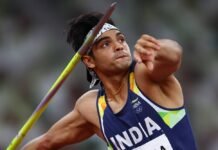The national team plummeted to depths unseen in years but the mediocrity, which has become a norm with the beleaguered outfit, got lost in the shrill din of the spectacle called Indian Super League even as the great Pele grabbed headlines briefly with his week-long sojourn.
Globally, the beautiful game witnessed the good, bad and ugly in equal measure.
From Barcelona’s treble winning season to Cristiano Ronaldo claiming the Ballon d’Or for the second time running, to the long-standing FIFA president Sepp Blatter and UEFA chief Michel Platini getting banned for eight years by the apex body’s Ethics Committee, football had a bit of everything for almost everyone.
Towards the fag end of 2015, Jose Mourinho getting the boot after reigning champions Chelsea tested Roman Abramovich’s patience in the current EPL season to the limit attracted attention.
Elsewhere in Europe, Bayern Munich continued their dominance in Germany while Catalan giants Barcelona, driven by the triumvirate of Lionel Messi, Neymar and Luis Suarez, reigned supreme in Spain. In Italy, Juventus lifted their fourth consecutive Serie A title.
In India, a pall of gloom enveloped the national team as it continued to sink further into the abyss. A peek into the World Cup qualifying results will give one a fair reflection of the state of the sport – the national team to be specific – in the country that is still hoping, desperately so, to wake up from its slumber.
Three points from six outings in the 2018 FIFA World Cup qualifying is not good advertisement for a country that is readying itself to host the U-17 World Cup in 2017, and possibly the U-20 version and a Club World Cup in the following years.
Stephen Constantine’s wards have lost five matches, including one to tiny pacific island Guam. The only saving grace was the 1-0 victory over Guam in the home fixture at Bengaluru.
In his second stint as chief coach, the under-pressure Briton was in the news over the issue of PIO (Players of Indian Origin) being not allowed to represent the national team.
The 53-year-old also had had his share of run-ins, most notably with yesteryear Brazilian superstar Roberto Carlos regarding release of players for the national camp. The Real Madrid legend was the marquee manager-cum-player of ISL franchise Delhi Dynamos for the second edition of the league.
India now ranks a lowly 166th in world football. Earlier this year, when cash-rich ISL continued to create waves and bring Indian football to the notice of the world, its national team slumped to its worst-ever FIFA rankings dropping to 172nd in the 209-nation chart.
A cloud of uncertainty shrouds the I-League and its existence in near future. The ISL is not the country’s national league and in Brazil icon Zico’s own words, the event “brings zero benefit” to Indian football. Zico coached the FC Goa franchise in the first two editions.
With three clubs – Pune FC, Bharat FC and Royal Wahingdoh FC – pulling out, the scene is not good as far as I-League is concerned.
While All India Football Federation president Praful Patel feels the state associations are not doing enough for the development of Indian football, the clubs give the impression that they are running out of patience with the AIFF.
On the positive side, ISL 2 was a success and champions Chennaiyin FC’s remarkable turnaround was easily the story of the tournament. The off-field fracas surrounding the FC Goa management and Chennaiyin’s star player Elano following the summit showdown, though, could have been avoided.
India also picked up pace in preparing for the U-17 tournament, scheduled to be organised across six cities less then two years from now.
The baton was formally handed over to India by last edition’s host Chile here in November. An evening later, the Indian capital played host to the (Asian Football Confederation) ‘AFC Awards Night’ for the first time.
On the U-17 event, a smiling Patel said, “This is historic. Hosting a tournament of such stature will help galvanise the face of Indian football among the masses and youth of the country.”
India was offered the tournament as part of FIFA’s development initiatives during the tenure of a man who is now battling corruption charges.
Banished from soccer’s ruling body for eight years for unethical conduct, Blatter though won’t give up the presidency without a fight.
It was a stunning removal of world soccer’s most powerful leaders over a USD 2 million payment by FIFA to Platini, the president of European soccer’s ruling body UEFA. The payment is also the subject of a criminal investigation in Switzerland and USA.
Already serving a provisional ban, the elected FIFA president and his long-time likely successor were kicked out of the sport just two months before 209 member federations elect a new leader. Their offences were judged to be conflict of interest and disloyalty to FIFA.








